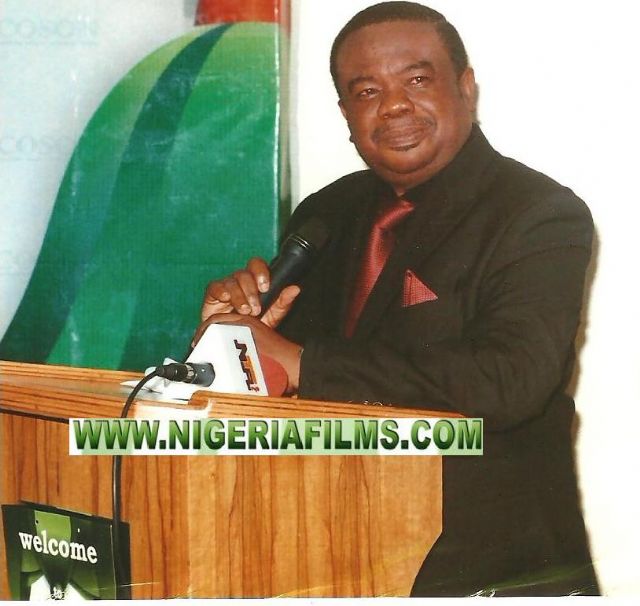
The ongoing romance between Governor Babatunde Fashola of Lagos State and the Nigerian film industry may not be a long lasting one, going by comments recently attributed to him. The governor graced Monday’s opening of the Association of Movie Producers (AMP) Eko International Film Festival at the National Theatre, in a move that should ordinarily endear him to the creative industries.
However, Mr. Fashola committed a major gaffe when he purported to lecture movie makers on the scourge of piracy, the large scale theft of intellectual property that government has been unable, or unwilling, to tackle.
Advising Nigerian filmmakers to see pirates as “our brothers and sisters,” the governor went on to issue a shocking justification for piracy, saying, “There is an economic opportunity there and that is the best way [pirates] have responded to it.” Befriending pirates, he suggested, could lead to a “win-win situation” for perpetrators and their victims, the filmmakers.
May we remind Mr. Fashola that piracy is a crime and that it is the government’s responsibility to bring perpetrators to book? The crime thrives on impoverishing filmmakers of their intellectual properties and prevents them getting due returns for their labour and investment. Pirates are criminals who reap where they did not sow and not, as Mr Fashola wrongfully posits, people merely looking for an “economic opportunity”.
Many film practitioners listening to Mr Fashola’s legitimisation of piracy, will have wondered if it was a wise idea having him at the event after all. Such views, grossly lacking in empathy, coming from such a high profile figure can only serve to compound the biggest problem crippling the Nigerian film industry today.
At national and state levels, government has consistently failed to find a solution to piracy. Government agencies have been powerless in the face of brazen, large scale pirate empires presided over by kingpins who seemingly operate above the law. The police and the law courts have been ineffectual at bringing perpetrators effectively to book.
Having failed to deal with piracy, Mr Fashola, by his words, has capitulated: The victims have been left to their own devises and now they must befriend the pirates so all can get along. Our readers’ comments in response to the governor’s statement were instructive. “He could as well ask us to befriend armed robbers,” suggested one reader, since robbers and pirates are involved in criminal behaviour that robs people of their legitimate property.
To appreciate what a clear and present danger piracy spells for our film industry, one need only consider the creative tragedy of Moses Olaiya, pioneering comedian and maker of movie classics like ‘Orun Mooru’. Better known as ‘Baba Sala’, Olaiya’s career was destroyed by the piracy of just one film. More recently, we have witnessed the very public agony of Tunde Kelani, one of the most important filmmakers out there today. All of Kelani’s films were pirated at one go, almost running him out of the business.
Not only was the market flooded with many pirated versions of his latest film, ‘Arugba’, Kelani also came under virulent hate mail by the unrepentant criminals who have exploited his films, such that the cinematographer considered leaving the country to practice elsewhere. Would Mr Fashola counsel that one befriends criminals of the ilk faced by Kelani?
The governor’s comments are unhelpful and regrettable. Also, coming from a supposed supporter of the film industry, his words are irresponsible and betray a lack of understanding for the scale of the problem, and the nature of the criminal mind that eats off the sweat of others. Pirates should not be handled with kid gloves.
Our film industry is the greatest exporter of the Nigerian brand as we know it today; and that industry cannot grow while it flounders under the massive assault of pirates. There can be no “win-win situation” with pirates. Government, Mr Fashola’s included, needs to stand up to its responsibility and find real solutions for the film industry.



















